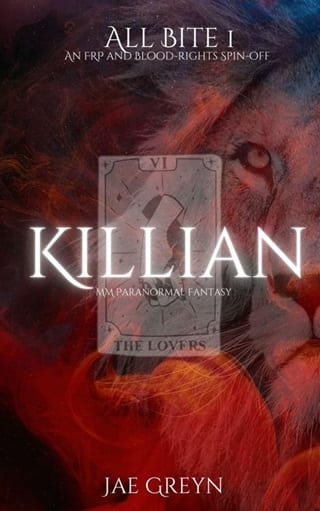Chapter 88
I sense I’ve done a poor job of explaining the exact nature of antiLight. This might be in part because even I, its discoverer, do not yet understand all the nuances of what I’ve done, though I do worry the ramifications of it will be felt for ages.
—From Rhythm of War, first coda, Navani Kholin
S igzil led while Narak Three fell.
He ducked away, spear in hand, beneath a sky of constant thunder—and behind him an Unmade finally died. Yelig-nar, who could be born for a short time to wreak terrible devastation before consuming his host, had been dropped right into the middle of Narak Three.
Sigzil and the others had brought him down, leaving the hulking form slumped among a pile of corpses. But this plateau was lost. Enemy Fused filled the place, Yelig-nar having drawn all of the defenders’ attention. Sigzil gathered the defenders and fought on, haunted by dreams of Leyten’s and Teft’s deaths. But standing tall because someone had to, and he had accepted this burden of leadership.
He would grieve later. For the defenders’ sake, he could not do so now. He gave the orders, and supervised their forces retreating from Narak Three onto the Oathgate platform. Once Sigzil gave the sign the Stonewards—using some of the last remaining Stormlight—dropped the bridge into the chasm.
Across the gap, on their newly won plateau, the singers rejoiced. They would find a pile of uninfused gemstones in the storehouse they’d won. Hopefully they would think the defenders had simply used up all the Light in the defense, and wouldn’t realize the trick Sigzil had pulled.
Sigzil breathed out misting breaths, then drifted back through harder rain than normal. He pulled his raincoat tight and settled onto the battlements of Narak Prime. Since the battle was over, he didn’t dare fly too much, as they had to preserve Stormlight.
Storms. He looked through the rain toward the new ranks of Radiants arrayed below, sent by Jasnah for the support of Narak—but he couldn’t deploy them. He was limited not by the number of Radiants he had, but by the number of gemstones he could use to equip them. He stood there a long while, feeling the deflation that followed a battle, the winding down of both emotion and muscle. They didn’t need him right now, as the logisticians and healers would deal with this part, but he remained where he could be seen.
General Winn eventually joined him on the battlements, climbing with effort in the rain. “Retreat was executed perfectly, Brightlord,” the man said. The elderly general wasn’t fit enough to hold a weapon himself, but had done a great deal of work behind the scenes to make the retreat go smoothly.
But they still had two days left, and couldn’t afford to lose another plateau. Sigzil needed to think of a way to help them last, somehow, despite his distractions.
“General Winn,” Sigzil said, watching the soldiers crowd the grounds below, seeking medical attention. Most of his soldiers would have to camp out in the rain now, as they’d lost a great number of their barracks with the abandonment of Narak Three. “How do you deal with the loss of soldiers under your command? Personally, I mean.”
“That’s a question without many good answers, Brightlord,” the older man said, leaning against the battlement beside Sigzil, rain pelting their coats. “At my age … well, loss isn’t an occasion, but a state of being. Of the forty-five men I served with as officers under Gavilar, I’m the only one left. Same for my siblings. Same for … well, most anyone my age.”
“I’m sorry,” Sigzil said.
“They weren’t taken by a traitor before my eyes,” Winn said, resting a hand on Sigzil’s shoulder. “That makes it hurt more, I’m sure. But let me tell you this: I saw you today leading the defenses, not losing control. You faced loss as an officer must. Be proud of that.”
“I don’t want to be proud,” Sigzil said. “I want to hold as we’ve been told. But Winn … the Stormlight.”
“I know. Your spren have any numbers for us?”
“She says,” Sigzil replied, “that she expects us to run out of Stormlight sometime today, early tomorrow at the latest, depending on how much we have to fly and how much the Stonewards have to repair the walls.”
They fell quiet. Vienta whispered some other numbers in his ear—her estimates of casualties, which were generally accurate. Information that he’d asked for, and that he appreciated, but when added to the falling rain and Winn’s general sense of uncertainty …
“What do we do?” Sigzil asked.
“Sir,” General Winn said, “I … am kind of hoping that’s something you’ll be able to answer. We’re going to need a plan. And under the circumstances, it will likely need to be something unconventional. You got us this far. Do you have any more ideas?”
“I’m working on it,” Sigzil promised. “But honestly, I’m hoping someone else has a miracle to suggest this time. Once everyone is settled, call a planning meeting.”
Chaos.
Shifting faces, but each bloody, each dying.
People Dalinar had known, people he’d fought beside, people he’d killed. Then … something new.
A world he didn’t know. A distant place where he brought death, destruction, and waste as the Blackthorn, in armor the color of coal. A world of strange beautiful architecture, all aflame; he ground its ashes beneath his heels.
Jolt.
The apparitions vanished, and he was … he was in the Kholinar palace? Wearing an Alethi uniform stained by wine on one cuff, the top buttons of the jacket undone. Around him, ardents in grey robes brought food to common people seated in rows on the floor. A Beggars’ Feast? Yes … yes, they’d often had these during Gavilar’s reign.
“Hey,” someone said, slapping him on the shoulder. “Rortel. I got some. Let’s go.”
Rortel … that had been one of Dalinar’s elites. He’d died in an early plateau assault, but this was before that, and Dalinar apparently wore his body. The man who spoke to him was Malan, a tall green-eyed fellow with dark curly hair—a member of the Cobalt Guard. He carried a jug of wine.
“ Come on, ” Malan repeated. “Let’s go.”
Dalinar let himself be pulled from his seat. Storms. Dalinar … knew this night, didn’t he? It was a night where he had failed. He followed Malan through the doorway, past a beggar sitting outside by the wall. Dalinar stopped, because he knew this beggar. It was Ahu, his drinking buddy.
“Jezrien,” Dalinar whispered, kneeling by the disheveled man, his beard grown long, his hair dirty and full of knots. “Blood of my fathers … it is you. All those years, I never recognized you …” The king of Heralds had been here, this night of all nights.
Jezrien took his hand. “Have you seen me?”
“Yes,” Dalinar said. “I see you now, my friend.”
“The man I was,” Jezrien said. “He escaped me. I let him go, like leaves before a storm. Have you seen him? I … would be him again. Please.”
Dalinar squeezed the Herald’s hand, but it was just a vision and Malan grabbed him by the shoulder. “Come on. Dalinar wants that wine.”
“Dalinar,” Dalinar said, “has had plenty of wine. He didn’t need to send us to steal some from the Beggars’ Feast. He’s an embarrassment to his name.”
Malan pulled him to his feet. “Watch what you say. We have orders.”
“Orders given by a drunkard,” Dalinar said, exhausted. “I don’t need to see this day again—I lived it.”
Malan looked at him as if he were mad, and perhaps he was. Then shouts rose in the near distance. Malan went on the alert, gripping his sword.
Dalinar instead knelt by Jezrien again. “I know you’re not real,” Dalinar whispered to him, “but I have seen the man you were. He wasn’t perfect, but he did his best to protect us. Thank you.”
The beggar regarded him, and seemed to grow lucid for a moment. “Have you seen yourself?”
“I think I am about to,” Dalinar said.
“Don’t lose him,” Jezrien said, urgently. “Don’t let go of him.” He gazed upward. “I can sometimes feel where I need to be … so I came here …”
Soldiers dashed down the hallway, yelling that an assassin was heading toward the king’s chamber. They would be too late, Dalinar knew, and for that they should be grateful. Szeth, possessing powers that hadn’t been seen in Alethkar for two thousand years, had slaughtered all who stood against him.
“We have to rouse the Blackthorn,” Malan said, again taking Dalinar firmly by the shoulder. “Let’s go.”
Dalinar let himself be taken. In truth, he remembered little of this part of the night. Because …
Because there he was in the feast hall, where the news of the attack hadn’t yet reached. Dancers were retreating, chatting to one another, and the Parshendi drums sat abandoned. People talked in the dimmer light of shielded gemstones, and a woman played a flute among spinning musicspren.
Dalinar slumped alone at one of the lower tables, his head down on the wood as he grumbled that the serving staff—on Navani’s orders—refused to bring him anything more to drink. He pointed at the soldiers as they arrived. “You found some?” he said, each word slurred. “Give me.”
“Sir, you’re needed!” Malan said. “There’s an assassin—”
“Give. Me. Drink,” younger Dalinar demanded. “I can still hear her. I want her gone. ”
He fumbled for the jug of wine while Dalinar—older Dalinar—looked on in revulsion. Most people drank a little too much now and then, but this was something else: A man who could not be trusted. A man who had long ago betrayed himself and everyone who loved him—and would soon reap his reward.
This was a man Dalinar hated. Both versions of him agreed on that point. Seeing his younger self like this made him sick.
“Sir,” Malan said as young Dalinar took a pull straight from the jug, “you need to—”
Older Dalinar slapped his younger self, making him spit wine. Malan backed away, shocked, as this was not normal behavior from his friend—both were quite effective enablers. Young Dalinar bellowed at the insult, stumbling to his feet. When he lunged, older Dalinar—one hand casually behind his back—sidestepped, then slapped him soundly across the face again.
When younger Dalinar came in roaring, older Dalinar caught him by the front of his wine-stained shirt. “Your brother is dying,” older Dalinar said. “Right now.”
Younger Dalinar looked at him, blinked red eyes, and it seemed to sink in. “Gavilar.”
“Is being murdered,” older Dalinar said.
“Gavilar?” Younger Dalinar pulled free of the grip and stumbled toward the door. He toppled to the floor halfway there. Falling into an unconscious stupor.
Brother, follow the Codes tonight …
Dalinar heaved a sigh, shaking his head. “What a disgrace.” His words made couples shy away, and Malan went running, probably to try to help the king. He was a good soldier, when properly led.
“Curious,” a voice said, thrumming through the walls, making the entire vision shake. “The man you were. Such an embarrassment. Does it hurt to see it?”
“I know what I was,” Dalinar said, standing tall. “I know I can never escape it, because I cannot bring Gavilar back. But I keep taking steps! You hear me. I keep taking— ”
The vision shifted. In the blink of an eye, he was in another room. Cold, with Gavilar’s corpse lying on a table. Older Dalinar did remember this—when he woke from his stupor, and was brought here to see …
Younger Dalinar stumbled down the steps into the room, then howled. Older Dalinar winced, despite what he’d said earlier, looking away as his younger self rushed to the body, then hugged it, heedless of the blood. Weeping with a raw pain that …
Storms, he knew that pain. It … did still hurt, all these years later. Like a wound that some surgeon had dug into with knife and forceps.
Brother, follow the Codes tonight …
“Grampa?” a voice said from behind him.
Storms. One of the guards. Gav? Yes, the child was standing among the guards, unseen by Dalinar at first. Dalinar immediately pushed forward, seizing Gav as the realm again went dark and shifting.
“Grampa,” Gav whispered. “You found me. Who was that dead man? Why were there two of you?”
“The dead man was your other grandpa, Gav,” Dalinar said. “My brother, the man you were named after. I … let him die.”
“Like … you had to let Daddy die?”
Dalinar closed his eyes, holding the child tight as the Spiritual Realm became chaos again.
“Everyone dies,” Gav whispered. “We see so many people. Killing. And dying. And killing. And dying. Gram says these pretends happened long ago. So many being killed …”
Storms. Dalinar clutched the child, thinking how it must be for him, seeing the Desolations. After a lifetime on the battlefield, Dalinar was familiar with its destruction. Maybe … maybe desensitized. He should have thought more about the child.
“There will be peace, Gav,” Dalinar promised. “That’s what I’m working for—what you and I are fighting for.”
“Will there?” Gav whispered, his head against Dalinar’s chest. “I don’t see it, Grampa. When I open my eyes, I see us fighting forever, and ever, and ever … And I have to be a soldier. I have to be strong and fight … like you.”
“There will be an end, Gav. I’ll find it.”
Holding Gav, with a storm of uncertainty around him, Dalinar finally understood something about himself. The drive that had first sent him looking for Bondsmiths to train under, then into the Spiritual Realm … it had been spurred by a growing distrust of the Stormfather and Honor, and of this plan to bind Odium.
Dalinar opened his eyes, and confronted it. The power swirling around him was Honor’s power—which refused to bond to another person. In it he saw death and destruction, and now—repeated over and over—he saw the vision he’d lived earlier. Humankind betraying Mishram. Again and again.
“What happens,” Dalinar asked the power, “if we make peace? If I win the contest?”
He saw it play out in a thousand different ways. Mankind would break that peace. Of course they would—Odium would ensure they did. Yes, Odium would keep his part. But he would insult, he would demean. He would enslave the humans in his lands, grinding them into the ground until their relatives in free countries demanded retribution. And war started again, for while a god could not break his word, humans could.
Humans always could …
“It doesn’t have to be like that,” Dalinar whispered. “Nothing we see has to be …”
Yet it seemed a sham to him now. Peace via contract? Even if he secured it, they’d circle back to this problem in the future. The same cycle he’d seen play out time, and time, and time, and time again in these visions. Death, destruction, fighting, war.
There would be no peace until the root problem was dealt with. And this treaty was no more than putting a bandage on a gut wound. Honor’s plan was flawed. It always had been.
“That’s why I need you,” Dalinar said to the power swirling around him. “I need the strength to deal with Odium personally, to end the war at its very roots !”
“You?” a voice said, a shadow falling over him. It was Odium’s voice from earlier, in the vision. Different from when he’d heard it before. Now faintly familiar … “You, Dalinar Kholin, think you can make peace? You break everything you touch. You took the throne from Elhokar, then sent him to die. You want to be a god because you want power. ”
“No,” Dalinar said, frowning. “You don’t know me. You—”
Odium’s strength swept across him, and ripped Gav from his arms. It sent Dalinar tumbling through darkness. Visions began to assault him, relentless, knocking down his defenses—his confidence wearing thin.
And Dalinar Kholin knew what it was to be in Damnation itself.
 Fullepub
Fullepub 



